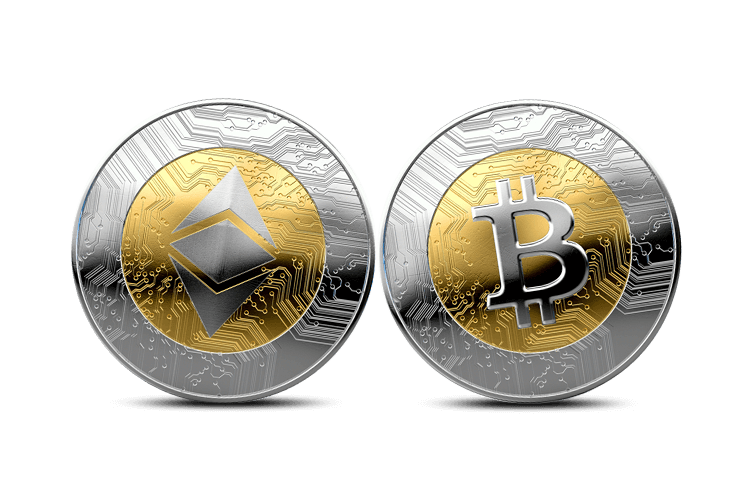Ethereum vs. Bitcoin: What is the Difference?
Date Modified: 2025/08/17
Ethererum, also known as Ether is a currency used to complete transactions on the Ethereum network, and Bitcoin have many fundamental similarities. They are both cryptocurrencies rooted in blockchain technology. This means that independent computers worldwide volunteer to keep a list of transactions, allowing each coin's history to be checked and confirmed.
They are both virtual currencies actively used for services, contracts, and as a store of value. Their popularity has grabbed the attention of news publications and traders alike, who hope to understand better how blockchain technology may change the monetary landscape over time. However, this is where most of the similarities end.
Their decentralised nature is a big change from traditional currencies, but they are not accepted everywhere. While Bitcoin is accepted more widely and viewed as an international digital currency, Ether is only accepted for transactions in Digital Applications (Dapps) that run on the Ethereum network.
Besides this, the two cryptocurrencies differ in multiple ways, explored in this article:

TL;DR
- Bitcoin is a digital currency mainly used as a store of value and is widely accepted.
- Ether powers the Ethereum network and is mainly used for apps and smart contracts. Bitcoin is scarce (max 21 million), while Ether is unlimited.
- Bitcoin and Ether run on separate protocols and aren't compatible with each other.
Key Differences between Ether and Bitcoin
Both Ether and Bitcoin are cryptocurrencies that are based on blockchain technology. Beyond that, the currencies are quite different and have different uses.
Bitcoin
When they hear the words 'blockchain' or 'crypto,' most people think of Bitcoin. It was the first use case for blockchain technology and reimagined what currency could be if it were not tied to a specific central bank or country.
Its technology also makes it difficult to steal or tamper with since all machines on the decentralised network need to agree on the terms of any transaction. This mostly means confirming that the payee is the rightful owner of the currency.
The coin can either be traded on the open market or you can lend computing power to the network (mining) and be paid in Bitcoin for using your machine (harvesting).
The maximum number of Bitcoins that can ever be produced is 21 million, introducing scarcity into the market. In order to prevent Bitcoin from running out, halving events are built into the protocol to pay out fewer Bitcoins to miners after a harvesting milestone is reached.
Traders commonly monitor these events, as some have created market volatility while others have created no noticeable market movements.
Ether
Shortly after Bitcoin's release, Ethereum looked at how it used blockchain technology and imagined it could be used beyond just as a currency.
Beginning with Smart Contracts and decentralised Applications (Dapps), Ethereum soon realised that it needed a single currency for its platform that could be trusted in accordance with its protocols. This led the Ethereum Foundation, which oversees Ethereum's activity but can not independently change protocols, to create Ether.
Ether is mined in the same manner as Bitcoin, but unlike Bitcoin, Ethereum miners can charge a fee for confirming a transaction. In addition, there is no limit to the amount of Ether that can be released. This removed the perceived scarcity that may be a factor in Bitcoin's higher valuation.
Ether is the recognised currency that can be used across the Ethereum network, but is not widely accepted elsewhere. However, Bitcoin can not be used as a recognised currency on the Ethereum platform.
Protocols
Ethereum and Bitcoin operate on separate protocols, and their processes are not related to one another. This means that some transactions that may be allowed on one platform may not be allowed on another. This becomes a question when considering permissioned vs permissionless transactions.
Will Ethereum Overtake Bitcoin?
Ethereum's Ether and Bitcoin have many factors contributing to their valuations.
To speculate on the valuations of cryptos such as Bitcoin and Ether, traders must ask key questions such as:
- How is each coin used?
- How widely accepted is it today? How widely accepted will it be in the future?
- What can historical data tell us about this instrument?
While Bitcoin has traditionally held a higher price valuation than Ether, it is important to note that the cryptocurrency market has been highly volatile and will likely continue to be volatile. In contrast to stocks, commodities, or even centrally regulated currencies, a cryptocurrency's underlying value is unclear. You can also trade the price of Ethereum / Bitcoin (ETHBTC) Cryptocurrency CFDs
Conclusion
While Bitcoin and Ether both rely on blockchain technology and aim to decentralise finance, they serve distinct purposes. Bitcoin is viewed primarily as a digital currency and store of value, while Ether enables the Ethereum network and its decentralised applications. Their differences in supply, function, and acceptance reflect broader variations in how blockchain technology can be implemented. Understanding these differences is key to navigating the space effectively as the crypto market continues to evolve.
FAQs
No. Bitcoin and Ethereum operate on different protocols and are not interchangeable within their native systems.
It depends on your goals. Bitcoin is generally better for long-term value storage, while Ether is essential for using Ethereum-based apps.
Ether has more utility within the Ethereum ecosystem due to smart contracts and dApps, but Bitcoin is more widely accepted as a digital currency.
Bitcoin's cap of 21 million coins was designed to mimic the scarcity of precious metals. Ethereum focuses on utility, so it opted for a more flexible supply model.
It's possible, but speculative. Both have different strengths, and their future value will depend on adoption, use cases, and market dynamics.
Related News & Market Insights
Get more from Plus500
Expand your knowledge
Learn insights through informative videos, webinars, articles, and guides with our comprehensive Trading Academy.
Explore our +Insights
Discover what’s trending in and outside of Plus500.
Stay up-to-date
Never miss a beat with the latest News & Markets Insights on major market events.


